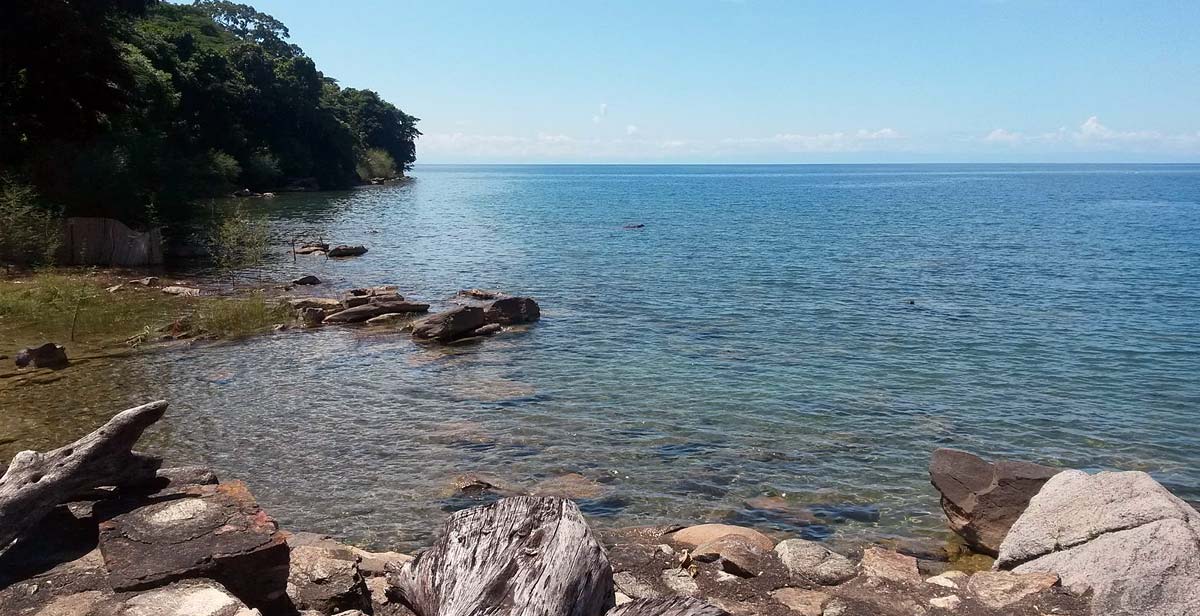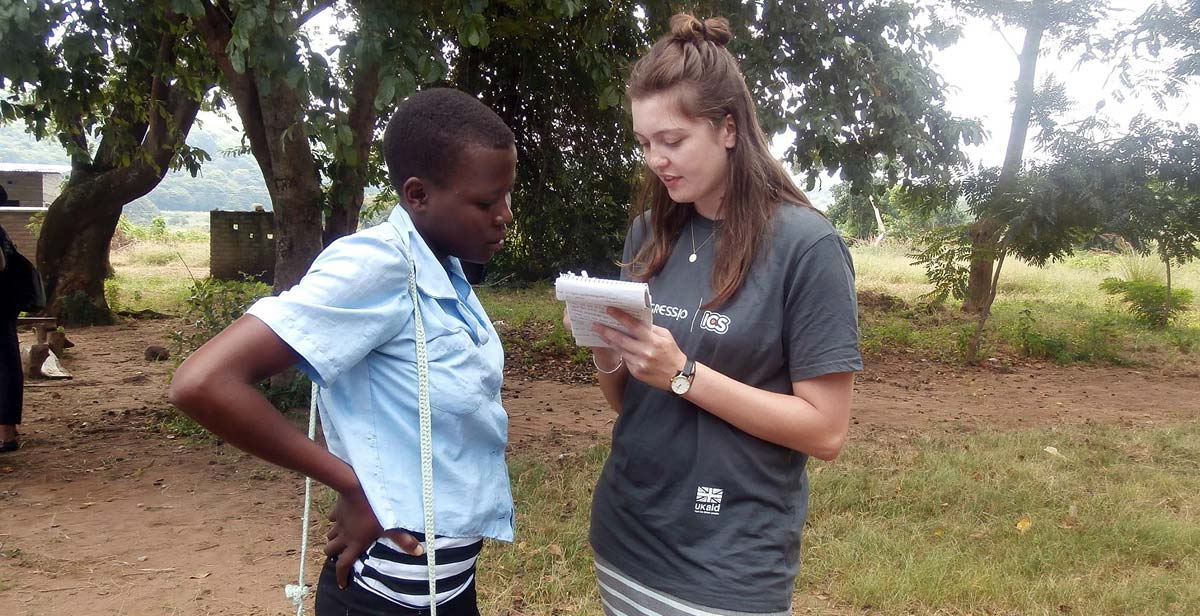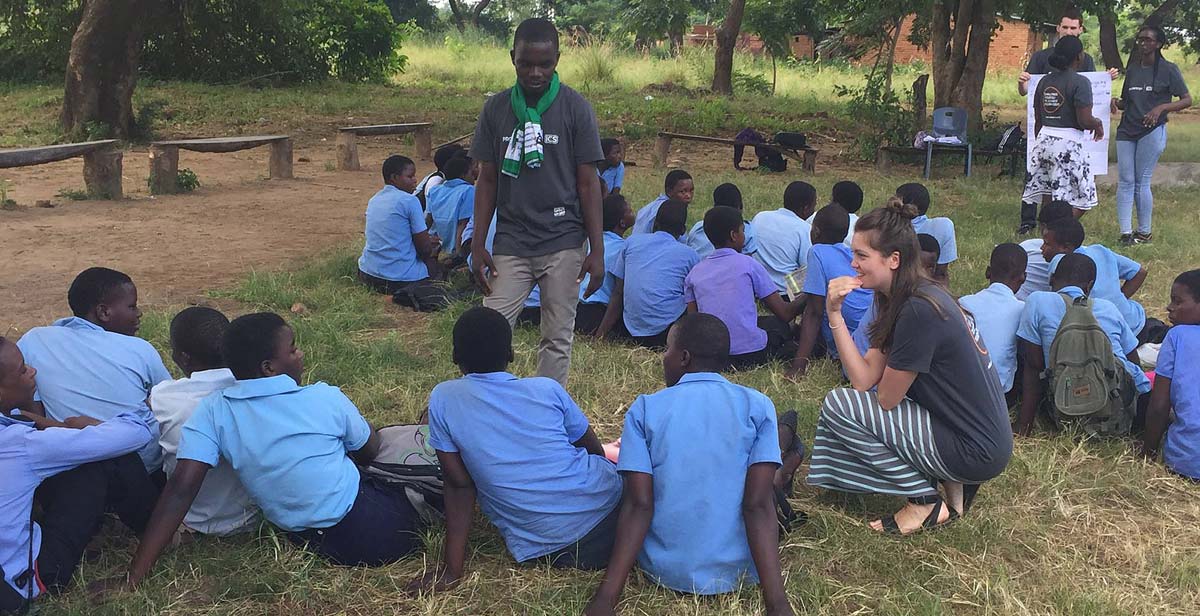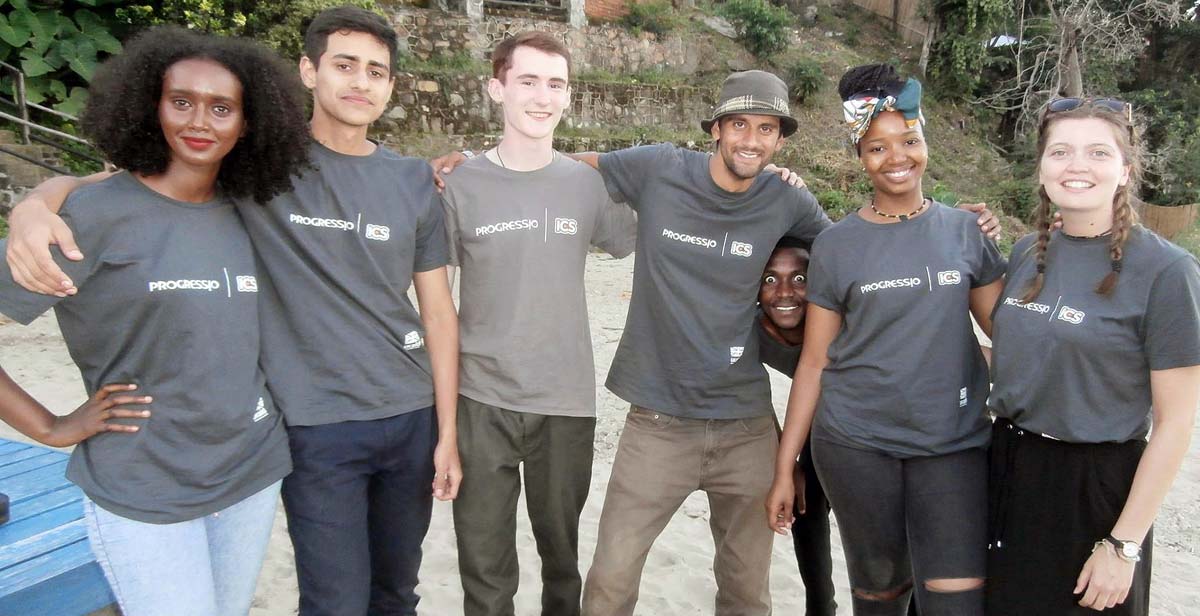International development or global development is a concept concerning the level of development on an international scale. It can be considered as the international classification of a country, such as developed country, developing country and least developed country. It also relates to human development and the international efforts in place to reduce poverty, inequality, improve health, education and job opportunities around the world.
When I was preparing for my twelve-week placement in Malawi this term ‘international development’ was banded around a lot. It didn't have any real meaning to me then. However, seven weeks into the project, I am beginning to understand the concept in more ways than one.
The beautiful town of Nkhata Bay, my home here in Malawi, is comprised of lush greenery and mesmerising views of Lake Malawi, making you think of a paradise rather than a district suffering with poverty. Despite this, all over the town there are clear efforts and signs of international development.

The Bay is currently being renovated to improve its layout, and introduce a bus depot with the aim of improving public transport links. There is a massive sense of community as the whole town appears united in working together moving the buildings brick-by-brick from one location to another. From the youngest of children to the elder members, all have been involved in the efforts of this project. It is pure amazement to watch a building from one end of town disappear and then materialise in another as if by magic. Buildings have been broken down to their raw materials, then transported and rebuilt in a completely new location. It reminds me of the ‘Teleporting’ Willy Wonka used to transport his chocolate! Unlike the reconstruction and building done at home in the UK, this has a chilled feeling to it. It is not chaotic or pressurised by deadlines, but a steady beat of progress.
The lack of industrial techniques and machinery is insignificant as the constant force of the hard working community members is enough to fuel this renovation project. For me this is development on an international level. The town has recognised its need for better transport links to the rest of Malawi, and has acted as one to achieve this goal. It has demonstrated development, increasing access to bigger cities aiding in business and job opportunities and thus decreasing levels of poverty.

I feel this is something our societies at home and myself personally can take and learn from. When there is change in the towns or cities I have lived in, it is often unknown to myself or I have zero involvement, and for these reasons our sense of community and acting as one has been greatly diminished. This feels like a massive loss as here community is so powerful and integral to the workings of a balanced society. This is not to say Nkhata Bay is not without its struggles but the efforts must be recognised and applauded.
I have also observed international development in a less visual sense during my seven weeks in this tropical land. My purpose in Malawi has been to plan and tour workshops as part of a group of 13 volunteers (seven from the UK, six from Malawi) to youths about sexual reproductive health, child rights, drug and substance abuse, and life skills. As part of this programme, we make weekly visits to local secondary schools. I have continually been placed in the same school and here is where I have noticed development. Following my most recent session where I was teaching life skills, I asked the students how they would resist peer pressure. They were able to successfully answer the question. This was an achievement in itself as the students were very reluctant to interact or even respond in the first few weeks we visited. Not only were they able to answer correctly, but they were able to build on their answer with content from previous weeks’ sessions. I felt immensely proud that we were getting through to the youths and elated the knowledge we were teaching was sticking with them and they were able to apply it to real life situations.

I have also discovered international development to be a sharing of cultures at the most basic of levels. During my stay here in Malawi, I have had the unique opportunity to reside with a host family. My host family have been the most accommodating and welcoming of families and I feel blessed to have been placed with them. They have made my Malawian experience truly unique. My eyes have been opened to family life in a totally new culture.
As with most families, meal times are as important here as it is in my family home. It is here where I feel I have developed internationally. Nsima the foundation of almost all meals out here has been an essential part to my education in Malawian cuisine. My host sister, who is an excellent cook and the main chef of the house, has been an excellent teacher. The effortlessness she demonstrates when gutting enough fish for 10 people, or the preparing of Sunday lunches for her own family of nine, as well as the neighbours and their numerous children, is a skill and complete dedication. She has also had the patience to show me the steps to cooking nsima, preparing the local vegetables and making the all-important soup, more of a sauce or relish, which accompanies most dishes. In return, I have shared with her my very basic cooking skills. My fellow volunteer and I have cooked up chilli con carne, cakes and bangers and mash for our host family with the hope of giving them a sample of a few popular British meals. I hope this exchange of meals has been mutually beneficial. I can certainly say I feel developed with international culinary skills.

All these experiences and life lessons have led me to interpret international development in my own way, I believe it to mean to be developed internationally. This adventure in Malawi has left me feeling internationally developed. I have gained a greater understanding of what family, community and what something is worth all really means. I feel I have grown to realise what the world can offer and what it can't and its brutal injustice. The harsh realities and extraordinary gifts each culture and environment provides is a lesson we can always be learning from. I am discovering we can never be entirely developed, only gain in international knowledge.
Written by ICS volunteer Olivia Hastie



